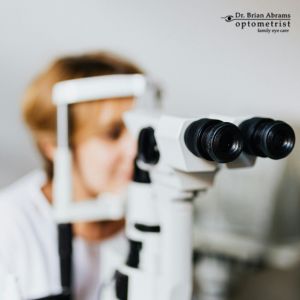You’re exposed to chemical solutions more often than you realize just by being at home, whether you’re cooking, cleaning, or even participating in your favourite hobby. This risk only increases at work for those who have higher-risk occupations or work in higher-risk settings like pharmaceuticals, medical practices, factories and manufacturing plants, and more. Your eyes are one of the most vulnerable parts of your body and arguably one of the most vital. Understanding how to minimize risks of chemical exposure or contamination, and address the incidents with speed, agility and effectiveness is key to reducing damage and preserving your eye health. Chemical exposure requires emergency eye care as soon as possible, whether that’s by your local eye doctor in Vaughan, like Dr. Brian Abrams, or at your local urgent care for serious incidents or accidents that happen after hours.
Here is what you need to know about when to seek what to expect when you seek emergency eye care as a result of a chemical exposure or encounter.
The Initial Emergency Response

Chemical exposure to the eye is a time-sensitive issue that requires an urgent response from professionals. Experienced eye doctors in Vaughan, such as Dr. Brian Abrams, will prioritize emergency cases as soon as they’re made aware that you’re en route. Before leaving for the clinic, you should rinse your eyes. Most commercial and public spaces with chemicals on-site will have an eye wash station, which can be used to rinse out your eyes, diluting harmful substances and reducing the chance of deep tissue damage. Once rinsed thoroughly, make your way to your local care centre.
Once you get to your eye doctor in Vaughan, they may continue flushing the eye with a sterile saline solution for approximately 30 minutes or until the pH levels of the eye return to its normal levels.
Triage and Evaluation
Once a patient arrives with an eye emergency, our staff will begin by asking questions about the type of chemical, how long the exposure lasted, and whether both eyes were affected. This helps your eye doctor in Vaughan determine the severity of the injury. An eye examination using fluorescein dye and a slit lamp will usually follow to assess damage to the cornea, conjunctiva, and inner parts of the eye.
Understanding the Specific Chemical Exposure
Not all chemical exposures are the same. Alkaline substances (like drain cleaners or ammonia) tend to cause more damage than acids because they can penetrate the eye more deeply. Emergency eye doctors will treat alkali burns more aggressively, possibly using special eye drops to neutralize the chemical and prevent further injury. For acid exposure, damage is often more localized but still requires intensive treatment to minimize scarring or vision changes. Regardless of the chemical, it’s safest to check in with Dr. Brian Abrams to determine if urgent treatment is required and to start your emergency eye care plan, whether that’s immediate flushing or an eye exam.
Ongoing Eye Care and Follow-Up Visits
Depending on the severity, patients may be prescribed antibiotic drops to prevent infection, lubricating drops to support healing, or corticosteroids to manage inflammation. Emergency eye care doesn’t end at the clinic. Follow-up visits with Dr. Brian Abrams are recommended (likely on a more frequent basis) to monitor healing and ensure that no complications, such as corneal ulcers or glaucoma, arise.
Protect Your Eyes with Emergency Eye Care in Vaughan
If you or someone you know experiences chemical exposure to the eyes, don’t wait. Visit Dr. Brian Abrams for reputable, fast, and reliable emergency eye care in Vaughan. Our team is here to help.


